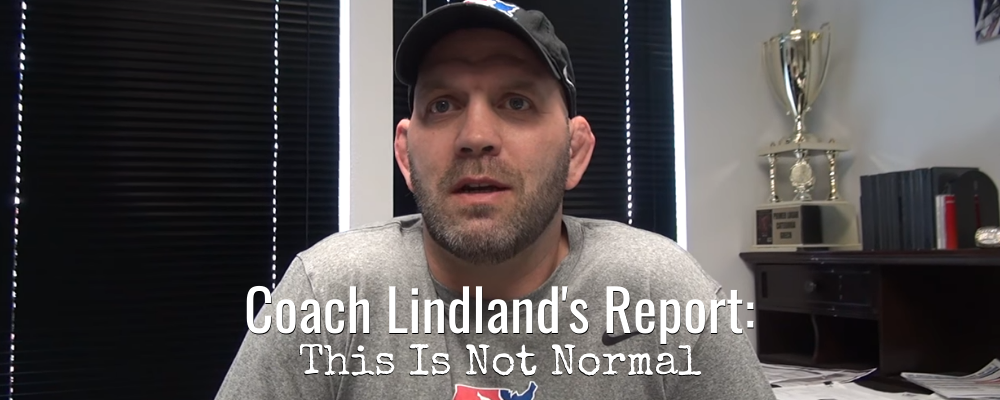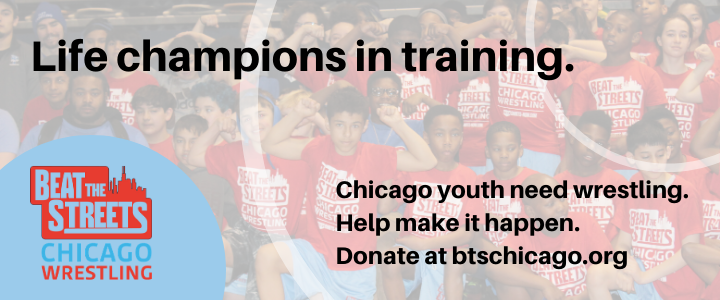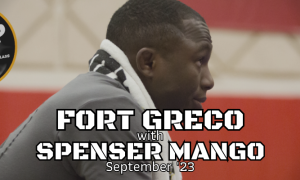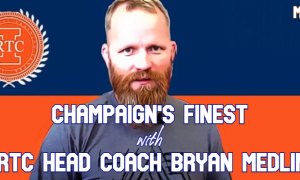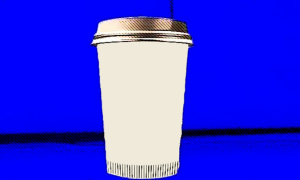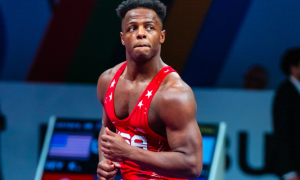Five Point Move is proud to host USA Greco-Roman National Team head coach Matt Lindland each week for Coach Lindland’s Report. Here is where you will find detailed perspectives from Coach Lindland pertaining to recent results, upcoming events, training plans, and other Greco-related news that isn’t available anywhere else. ALSO — if you would like to donate directly to the US Greco-Roman program, just click here. Your support is appreciated!
The previous edition of the Coach Lindland’s Report was published on March 18 — mere days after the US locked down four weights for Tokyo at the Pan-American Olympic Qualifier in Ottawa. That very week, America along with most of the planet was shuttered to “slow the spread” of the virus that causes COVID-19; and in short order, both the US Olympics Trials and the Olympic Games itself were postponed an entire year.
So there hadn’t been much to discuss.
But now things are a little different. A few actual pertinent topics surrounding Greco-Roman and the US National program’s place in it have entered the conversation. From the recently-availed training opportunities for American Seniors stateside to the announcement that a World tournament has been added to the schedule later this year means US National Team head coach finally has some on-the-mat items to discuss. However, we begin with a quick little rewind to the feeling around late-March, when the Trials were first shelved; next it’s onto what it is like being a National coach who depends on WiFi functionality; then, the camps; and lastly, what training for a December Worlds could potentially look like.
5PM: The one thing that I’ve had sticking in my mind is that if the season didn’t get cut short, Greco had a lot of momentum heading into the Trials. Men and women’s freestyle didn’t enter their qualifiers with as much pressure and needing to qualify as many weights, so the story for Greco had basically written itself. That, plus the fact that pretty much all of the Greco brackets at the Trials would have been and will be very compelling. Has that thought also crossed your mind, Greco owning much of the narrative after Ottawa only to have the Trials pushed back a year?
Coach Matt Lindland: Yeah, it was very disheartening to see what happened. We had really started to pick up momentum back in January when we began traveling overseas. We can even reference that Report I did after the Denmark camp where I talked about how well the Team was clicking and working together. Guys were serious about making adjustments and changes. And change is hard to do. It’s hard to change when you are comfortable with something. Maybe it’s working, but there might be a better adjustment or tweak that you could use. Having guys become so willing to make those adjustments was very encouraging. I remember I was talking about that going into that, heading into our final camp before the Qualifier.
And then we saw what happened at the Qualifier. We were very close to getting all six of them (Olympic weight categories) done. And then I still felt confident that after the Trials that we would come away with athletes at 77 and 130 (kilograms) who would be very capable and likely to qualify their weights once the other three Continental Qualifiers were taken care of.
So, I was feeling really good about that and excited about the direction of the Team and the program. I was very encouraged by the momentum, and then we just hit the brakes. Hard. Training ceased. It is nice to see that guys are figuring out how to get back at it. I couldn’t imagine being an athlete during these trying times. It would be very frustrating. But, you figure it out, and fortunately, our guys are figuring it out. There was a camp a couple of weeks ago in Oklahoma and now this week several guys are in Boise. We still have a few more opportunities coming up.
The hard part is that we are not able to host National Team camps. We didn’t budget for a pandemic, either. There is no budget in place really for this. As an organization we are hemorrhaging money because a lot of our memberships come in the summer for Fargo and what not. Especially if this thing lasts through the fall, it’s going to be tough figuring out how things have to happen budgetary-wise. But I’m happy to see guys getting to camps. Herb (House) is out there in Boise this week and he is sending Zoom links to the coaches. It’s great. It is great to see that guys are taking ownership of their training and getting back after it.
5PM: How weird for you has it been having to keep up with athletes and coaches via a bunch of Zoom calls?
ML: It has been good and bad, in the sense that it’s great to connect with guys when they get on the calls; and it’s good to get the one-off calls with individuals to check in on them and see how they’re doing. That’s really all I can do. Normally, those same calls would be requests asking for airports, dates they can travel and what not. Now we’re just trying to stay in touch and check in on how they’re doing and getting updates on what their training environments look like. Are they restricted by numbers? Are they restricted to training outside individually? I do see some guys getting on the mat together and working with one another.
Every state has been a little different, and every program has been a little different. But I think that USA Wrestling is taking a very conservative approach to how they want the National staff to respond to training. It needs to be very conservative. They are a large organization, and bigger organizations tend to be a little more risk-averse — and that’s not necessarily the message I want to send to athletes, especially when that is one of the main tenets of our sport, to take risks. But I don’t want to put anyone in jeopardy, either. I don’t want to be responsible for getting someone sick, and there have been fatalities with COVID. Mostly not young, healthy athletes. I don’t know of any at all who have been sick. Even (Ismael) Borrero right after the qualifier. He got the COVID and two weeks later we heard that he was healed, healthy, and back at it training. But I don’t want to take that responsibility of putting someone in jeopardy, either, and I’m glad athletes are taking ownership over their own training and figuring it out. As they should.
5PM: These camps in Boise and elsewhere are not “official”, but lack of a better word, endorsed. Has there been trepidation on your end yet just because like Herb had said, basically all it takes is one problem and then the whole thing gets taken away again for who knows how long?
ML: I think you have to look at both sides of that. Yeah, someone could get sick and things could get shut down. But right now we are following state and local guidelines wherever camps are being held. No one is requiring anyone to go to a camp. And I wouldn’t even say “endorsed”, I would say “opportunities created”, and we are all working together. Ivan (Ivanov) got on board, and it was nice to see the coaches in Oklahoma creating those opportunities for athletes to have a place to train. And I really appreciated that because we are a volunteer organization, that’s how we operate, and it’s important we have these volunteer coaches out there leading and creating these opportunities for our athletes to participate.
But yes, certainly, if something happens at one of these camps it would probably make the news, it wouldn’t be a positive news story, and it would mean things probably get shut down. I think that’s why there is a lot of hesitation from the National staff to be a part of these at this time. But I’m sitting here watching this stuff online going, Man, I wish I was out there working with these guys. Just being engaged and connected with them, helping them grow and improve.
Even during this time, I think it is an opportunity to make gains while other people can’t train. We’re always looking for that in athletes. We are always looking to find that guy who stays in the gym later, that guy who comes to practice 20 minutes earlier to do motion from par terre. We are always looking for guys who are creating those opportunities to get extra work in the areas where they can make gains. If you’re not making gains, you are falling behind because someone else is. So it’s great that we have coaches, clubs, and individuals who are out there and willing to support the mission.
5PM: Let’s say you could bring back a rule-set from your competitive days. Which would it be, and which one was your personal favorite?
ML: Well, personally, the rule-set we had was very similar to the one we have now, minus the extra point every time a guy steps out. I would have loved to have that step-out. We were fortunate that the passivities would be called if someone was going off the mat intentionally or you attacked them and they went out. But just to drive a guy off the mat. There were so many times when you would create a lot of pressure on a guy, then he steps out and they just restarted you in the middle, but now you don’t have the tie you used to get the guy to the zone and create the action to get him off the mat. I would have loved to have seen that push-out.
But I really love the rules right now. I don’t think we’ve had a better rule-set. I remember some of those years after I retired when the rule-sets were three periods and you had to win two out of three. That was absolutely ridiculous. Starting with clinches, starting with reverse body lifts. Those were just utterly ridiculous rule-sets.
The rule-sets I competed in were very similar to now: forced par terre and passivities — but you didn’t get a point for the passivity. I actually like that, as well. There should be a penalty for being passive, besides the opportunity to get on top. There is a pretty great advantage if you know how to utilize that position. I was pretty good in that position and took advantage of those opportunities, and I think that is why I was capable of having some success at the international level, because of my skills in the top par terre position. But I would have loved to see an extra point for the passivity, and I definitely like the step-out.
There are a lot of opportunities to score that step-out, even failed attacks and attempts on your feet can result in at least one point if you put that energy and effort out there. A lot of times you see athletes not want to take that risk, that effort, because they want to reserve that energy. But even knowing that one point can change the dynamics of the match means your opponent now has to come to you, and that is going to open up more opportunities. Even if you take a one-point lead, that forces your opponent to even up the score or try to get ahead, and that opens up more opportunities. So I think it’s really important to get that first point, whether it is a passivity, step-out, or a bigger score. Then it changes the entire dynamics of the match.
5PM: Some old-school retired guys have said they would like to see one period come back.
ML: I wrestled one five-minute period. No, I like the two three-minute periods much more than the one five-minute period. I don’t know, maybe those guys were more grinders. But I definitely liked the two periods. I even appreciated the one minute in between, though I think :30 is a much more reasonable amount of time between periods.
5PM: I know it’s early, super-early, and that there are too many variables both real and hypothetical to consider — but if there is a Senior Worlds and if the US wants to participate, have you preliminarily spit-balled what that short turnaround between a Trials and Belgrade might entail?
Coach Matt Lindland: Yeah, we have looked at that. Like you said, there are a ton of hypotheticals. I’m not very optimistic that (the World Championships) is going to happen although I do see it on the calendar like everyone else does. An then today we saw that there is a spike in Belgrade and they are protesting the new lockdowns. There is just so much stuff to think about.
Yes, I do consider those things but I don’t want to get too wrapped up in them. It’s more about focusing on what you could control and not on what you can’t. And I think that is one of my biggest strengths — I don’t worry too much about what might happen. I deal with reality and what is going to happen. I do have some ideas and thoughts about what that turnaround would look like and how we could accomplish that. And then there are budget implications.
Honestly, we will probably look at it like what we were planning on doing this year after the Team was selected, which is going out to individuals. Going to their training sites and using the guys who are training with them would be more economically-sound budget-wise, as opposed to bringing guys in for larger camps. Plus, COVID is still a thing, so I think it makes even more sense regarding that. The idea of the Olympic and Paralympic Training Center opening up back up is not realistic, especially before the World Championships.
I think it would mostly look like what we had planned this year. We did have a couple of camps planned because this year was supposed to be the Olympic Games. But with the short turnaround and a World Championships, what I would most likely do is take some guys who are close to the same weights, get a couple of training partners, and do a couple of shorter mini-camps with them. Because obviously, if they made the Team they were prepared and ready to go. And — I could even see us moving that Trials date closer to the World Championships. Maybe even November, as opposed to where it potentially sits in a September time-frame. Yeah, I’ve had a lot of hypothetical thoughts, but I want to put my focus into what is reality and keep moving forward with that.
Follow Coach Matt Lindland on Instagram, Facebook, and Twitter for updates on the USA Greco-Roman Wrestling program.
Listen to “5PM37: The wildman Sammy Jones” on Spreaker.
SUBSCRIBE TO THE FIVE POINT MOVE PODCAST
iTunes | Stitcher | Spreaker | Google Play Music

Notice: Trying to get property 'term_id' of non-object in /home/fivepointwp/webapps/fivepointwp/wp-content/themes/flex-mag/functions.php on line 999

